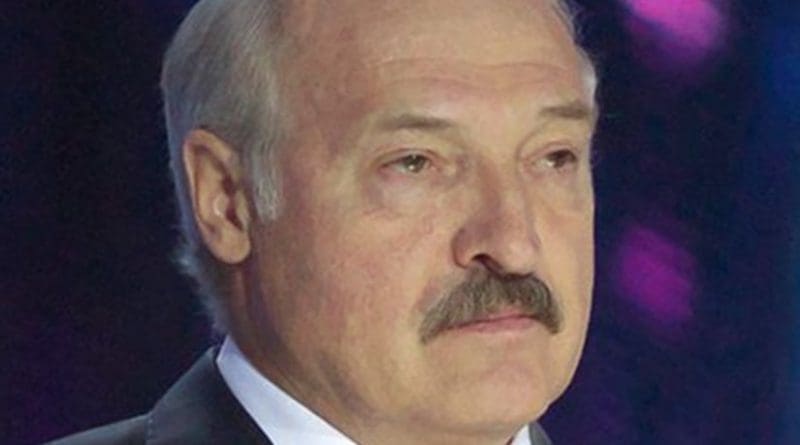With Kuropaty Vandalism, Lukashenka Has Shot Himself Not In Foot, But In Head – OpEd
By Paul Goble
The outrage Belarusians feel about Alyaksandr Lukashenka’s decision to demolish the crosses at Kuropaty may be somewhat difficult for people beyond the republic to understand, but ever more comments show that he has destroyed any hope that he and the Belarusian people can ever come back together
Below are selections of some of the comments that Belarusians are making about this horrific act, comments that suggest this is one of those unexpected actions that will continue to resonate among the people and do more to mobilize the population against Lukashenka and his authoritarian regime than anything that he has done up to now.
‘At Kuropaty, Lukashenka has shot himself not in the foot but in the head,’ Yevgeny Afnagel of the Belarusian National Congress says because “respect for funerals and graves is a very deep quality of the Belarusian mentality, which has been formed over millennia. Hundreds of thousands of residents of the country, including those far from religion, honor the memory of their ancestor” (charter97.org/ru/news/2019/4/7/329647/).
“The Lukashenka regime is consistently destroying our country,” Afnagel says. “First he tried to do this quickly; then, in the second half of the 1990s, the heroic struggle of Belarusians did not allow him to achieve his goal and surrender independence. After this, he began to take away all that is dear to us.”
He continues: “History was falsified, education and culture were destroyed,” and the opposition attacked. “Now, at Kuropaty, [Lukashenka] has begun a battle with fundamental values whose destruction as a rule means that the people as a rule will quickly disappear, with its faith, memory and traditions.”
“If we cannot defend them, we will lose Belarus,” the activist says.
Sergey Naumchik, a Belarusian activist, is even more blunt. He suggests that the Kuropaty vandalism is “Lukashenka’s fatal mistake.” It destroys his desired image far more than anything he has done in the last 25 years because it touches on something “very deep” for Belarusians, not Kuropaty but “crosses” (charter97.org/ru/news/2019/4/7/329649/).
Vyachaslau Barok, a Belarusian priest, suggests that the best way to understand what the Kuropaty vandalism means is that it will lead to a revolution: “Ukraine had a Maidan; we have Kuropaty” (charter97.org/ru/news/2019/4/6/329626/).
And Irina Khalip, a close observer of the Belarusian scene for Moscow’s Novaya gazeta, says that “what has taken place in Kuropaty is not vandalism: it is a state violation of the nerve connections” of Belarusians. No medicine is going to prove capable of curing this kind of wound (novayagazeta.ru/articles/2019/04/06/80116-kresta-na-nih-net).

